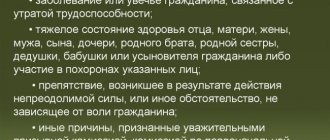When carrying out activities aimed at solving a crime, a person suspected of committing an unlawful act may become an accused. If, after the investigation, the case goes to court, this citizen becomes a defendant. However, the presence of suspicion does not mean that during the trial a person will be found guilty of committing a criminal offense.
Download for viewing and printing:
Article 46 of the Criminal Procedure Code of the Russian Federation “Suspect”
Article 47 of the Criminal Procedure Code of the Russian Federation “Accused”
This is precisely the reason why a defense attorney must be involved in the proceedings. A lawyer will be able to find evidence of his client’s innocence and point out errors during preliminary and trial activities.
Services of a lawyer during the preliminary investigation of a criminal case:
- Protection of the rights of the accused (suspect) during the preliminary investigation (inquiry): familiarization with the available materials of the criminal case and determination of the judicial prospects of the case; developing a line and choosing defense tactics, consulting the client and his relatives on issues of criminal prosecution; participation in interrogations, confrontations, searches, seizures and other investigative actions; visiting the accused (suspect) in the pre-trial detention center; drafting and submitting petitions and statements; requesting certificates and other documents for inclusion in the materials of the criminal case; obtaining explanations from witnesses and other persons; initiation and organization of independent examinations; appealing the decision to select a preventive measure, other decisions, as well as the actions of the investigator (inquiry officer), prosecutor, judge; other actions provided for by the current legislation of Russia;
- Representation of the interests of the victim, civil plaintiff, civil defendant, as well as witnesses during the preliminary investigation: familiarization with the materials of the criminal case and determination of the judicial perspective of the case; consulting on issues of criminal prosecution, compensation for material and moral damage caused by a crime; participation in interrogations, confrontations and other investigative actions; drawing up a statement of claim, objections to the statement of claim and submitting them to the preliminary investigation authorities; drafting and submitting petitions and statements; appealing the actions and decisions of the investigator, prosecutor, judge; other actions provided for by the current legislation of Russia
The defense must sow doubt
The article discusses the problems associated with the qualification of an act when courts consider requests from investigators to choose a preventive measure in the form of detention. The current Code of Criminal Procedure of the Russian Federation, while giving judges the right to make decisions on choosing a preventive measure, did not regulate the most important issues of the validity of suspicions and the courts’ verification of the evidence of the charges brought forward. In these conditions, the active work of lawyers, expressed in a thorough study of all evidence and materials presented by the investigator in order to check not only the validity of suspicions, but also the correctness of qualifications and reporting their conclusions to the court, will contribute to the judges making legal and reasonable decisions.
The severity of the crime is the “queen of circumstances”
In 2022, courts with the participation of defense lawyers considered 106,046 petitions for detention (94,633–89.2% were satisfied, 10,233 were rejected), 217,822 petitions for extending the period of detention (211,284–96.99% were satisfied). , denied 4761)1.
The procedure for courts to consider requests from investigators to select a preventive measure in the form of detention and to extend the period of detention is well known to Russian lawyers, but it cannot be called flawless and successful.
I remember the period of time when, according to the Code of Criminal Procedure of the RSFSR, prosecutors authorized investigators’ decisions to place people in custody and, before making such an important procedural decision, carefully studied the materials of the criminal case, the collected evidence and, of course, assessed the qualifications of the actions of the accused.
The current Code of Criminal Procedure of the Russian Federation, having given judges the right to decide on the choice of a preventive measure in the form of detention, house arrest, bail, prohibition of certain actions, extension of the period of detention, did not resolve the most important issues of checking the qualifications and proof of the charges (suspicions).
At the same time, in accordance with Art. 99 of the Code of Criminal Procedure of the Russian Federation, when deciding on the need to select a preventive measure in relation to a suspect or accused of committing a crime and determining its type, the severity of the crime must be taken into account, and, as practice shows, it is the severity of the crime that is the “queen of circumstances” taken into account by the courts.
A strange picture emerges: the judge makes a responsible decision to place him in custody, taking into account the gravity of the charge, the validity of which he himself does not check, but is forced to trust the person interested in the charge - the investigator.
Reasonableness of suspicion
In order to eliminate this significant procedural defect, a procedure for “verification by the court of the validity of the suspicion of a person’s involvement in the crime committed” was invented with the help of precedents of the European Court of Human Rights and introduced into domestic practice.
Thus, in paragraph 2 of the resolution of the Plenum of the Supreme Court of the Russian Federation dated December 19, 2013 No. 41 (as amended on June 11, 2022) “On the practice of application by courts of legislation on preventive measures in the form of detention, house arrest, bail and prohibition certain actions” states: “The choice of detention as a preventive measure is allowed only after the court has verified the validity of the suspicion of a person’s involvement in the crime committed. Reasonable suspicion presupposes the presence of evidence that this person is involved in the crime committed (caught while committing a crime or immediately after its commission; the victim or eyewitnesses pointed to this person as having committed a crime; on this person or his clothing, with him or in his home, obvious traces of a crime were found, etc.).
To draw the attention of the courts to the fact that checking the validity of a suspicion of a person’s involvement in a crime cannot be reduced to a formal reference by the court to the presence of sufficient data from the preliminary investigation authorities that the person is involved in a crime. When considering a petition to select a preventive measure in the form of detention, the judge is obliged to check whether the petition and the materials attached to it contain specific information indicating the involvement of this particular person in the crime committed, and to evaluate this information in his decision.
Leaving the judge without checking and assessing the validity of the suspicion of a person’s involvement in the crime committed should be regarded as a significant violation of the criminal procedure law (part 4 of Article 7 of the Code of Criminal Procedure of the Russian Federation), entailing the cancellation of the decision to select a preventive measure in the form of detention.
When checking the validity of the suspicion of a person’s involvement in a crime committed, the court does not have the right to enter into a discussion of the question of the person’s guilt.”
The last thesis arose from the ruling of the Constitutional Court of the Russian Federation dated March 24, 2015 No. 676-O, according to which the current rules for choosing a preventive measure in the form of detention by the court do not allow the court to prejudge a person’s guilt in committing the crime charged to him.
Meanwhile, there is no definition of the concept of “reasonable suspicion” in the Code of Criminal Procedure of the Russian Federation.
The European Court of Human Rights in its judgments of 30 August 1990 in the case of Fox, Campbell and Hartley v. the United Kingdom, of 28 October 1994 in the case of Murray v. the United Kingdom, of 19 May 2004 in the case of Gusinsky v. Russian Federation, a decision dated February 28, 2002 on the admissibility of the complaint filed by V. M. Labzov against the Russian Federation, stated that “‘reasonable suspicion’ presupposes the presence of facts or information that convince an objective observer that, the person concerned may have committed an offence. However, what may be considered “reasonable” must be determined taking into account all the circumstances.”
At the same time, both in these and in a number of other decisions, the European Court of Human Rights noted that sub. "c" clause 1 art. 5 of the Convention for the Protection of Human Rights and Fundamental Freedoms, which allows for the lawful arrest or detention of a person, does not imply the need for investigative authorities to obtain sufficient evidence to bring charges both at the time of arrest and while the arrested person is in custody; The facts that support suspicion when making an arrest do not necessarily have the same degree of persuasiveness as those that are necessary to file charges, the next step in the criminal investigation process.
In other words, the facts that give rise to suspicion should not be of the same level as those necessary to justify a conviction or even to bring an accused.
The term "substantiation" refers to the threshold that a suspicion must pass to satisfy an objective observer as to the likelihood of the accusation.
A higher standard of proof is provided for the extension of the period of detention, and this is reflected in the following:
“The existence of a reasonable suspicion that the person detained has committed an offense is (sine qua non) a necessary condition for the lawfulness of the extension of the period of detention, but with the passage of time this becomes insufficient and the Court must then determine whether other grounds existed for deprivation of liberty specified by the judicial authorities. When such grounds are “well-founded” and “sufficient”, the Court must also be satisfied that the national authorities exercised “special care” in conducting the proceedings” (paragraph 90 of the ECtHR judgment of 13 November 2012 in the case “Koroleva v. Russian Federation ").
Speaking about the validity of suspicion, it is necessary to recognize that we are dealing with a complex procedural structure, which in practice is very difficult to follow.
Verification of evidence
I have no doubt that judges and other law enforcement officials understand the standard of proof of guilt provided for in Part 1 of Art. 171 of the Code of Criminal Procedure of the Russian Federation (if there is sufficient evidence providing grounds for accusing a person of committing a crime, the investigator makes a decision to charge this person as an accused) and Part 4 of Art. 302 of the Code of Criminal Procedure of the Russian Federation (a conviction cannot be based on assumptions and is decided only on the condition that during the trial the defendant’s guilt in committing a crime is confirmed by the totality of evidence examined by the court).
At the same time, I will take the liberty of asserting that the very low standard used when checking the validity of a suspicion of a person’s involvement in a crime is not clear to anyone.
In order to comply with the instructions of the Plenum of the Supreme Court of the Russian Federation, judges have learned to use standard wording stating that they have verified the validity of the suspicion of a person’s involvement in a crime, which is confirmed by the records of interrogations and investigative actions, while the contents of the relevant documents are not given, but only references are made to the type proof. It seems that in this way only the appearance of an inspection is created.
But there is another problem: there are no rules governing the procedure for conducting such an inspection. It is unlikely that Art. 87 of the Code of Criminal Procedure of the Russian Federation, according to which “verification of evidence is carried out by the inquirer, investigator, prosecutor, court by comparing it with other evidence available in the criminal case, as well as identifying their sources, obtaining other evidence confirming or refuting the evidence being verified.”
In the simplified and short-term procedure for checking evidence when choosing (extending) a preventive measure, the court does not have the opportunity to fully verify it by comparing it with other evidence available in the criminal case, as well as identifying its sources, obtaining other evidence that confirms or refute the evidence being verified.
It turns out that the judge, under limited time and in the absence of any clear criteria, must assess the validity of suspicions “with one eye” in order to establish, as the European Court points out in the judgment of May 24, 1989 (complaint no. 10486/83) in the Hauschildt case v. Denmark”, at least partially culpable person.
As a result, such a check is inferior and is initially fraught with judicial errors.
How should a lawyer act?
We are well aware of the negative practice of deliberate overestimation by law enforcement officers of the classification of the crime charged to the suspect (accused).
So, instead of “entrepreneurial” articles, under which arrest is impossible in connection with the prohibition provided for in Part 1.1 of Art. 108 of the Code of Criminal Procedure of the Russian Federation, investigators charge fraud on an especially large scale, and the courts choose detention as a preventive measure, taking into account the severity of the charge.
There are examples when a suspect causes death (grievous bodily harm) in a state of necessary defense or when exceeding its limits, and the investigator charges him with murder (Article 105) or causing grievous bodily harm (Article 111) and successfully takes him into custody through the court , which is deprived of the opportunity to fully verify the correctness of qualifications.
If the court takes someone into custody, then the probability of a further extension of the period of detention is 96.99%.
The European Court has repeatedly emphasized the fundamental importance in a democratic society of the guarantees of a person’s rights against unlawful arrest contained in Art. 5 of the Convention. It is for this reason that he has repeatedly indicated in his decisions that any deprivation of liberty must be carried out not only in accordance with the basic procedural rules of national law, but also in accordance with the purposes of Art. 5, i.e., to protect a person from the arbitrariness of the authorities.
As we can see, the design of the Russian criminal procedural law does not provide sufficient guarantees against arbitrariness on the part of law enforcement agencies and in fact represents a lock without a key.
This circumstance imposes additional obligations on lawyers to challenge qualifications when resolving investigators’ requests for detention and extension of detention.
The logic of the defense’s actions should be something like this.
The choice of detention as a preventive measure is allowed only after the court has verified the validity of the suspicion of a person’s involvement in the crime committed, but not in some abstract crime, namely in the crime that is charged against him. And since any crime corresponds to a certain article of the Criminal Code of the Russian Federation, we have the right to determine the correctness of the qualification.
A criminal legal assessment can be given by the investigator in a decision to initiate a criminal case, when the question of detention is raised in relation to a suspect, or in a decision to bring him or her as an accused.
For the court, and, consequently, for the defense lawyer, there is only one established prohibition when checking the validity of a suspicion of a person’s involvement in a crime - not to enter into a discussion of the question of the person’s guilt.
In this regard, nothing prevents the defense attorney from calling into question the correctness of the investigative qualifications in his closing speech.
For example, the investigator charged the accused with committing a crime under paragraph “a” of Part 3 of Art. 286 of the Criminal Code of the Russian Federation, but when presenting the substance of the charge, he did not indicate that the person’s actions entailed a significant violation of the rights and legitimate interests of citizens or organizations or legally protected interests of society or the state. In other words, he described actions that do not constitute a crime under this article. In such a situation, the lawyer is obliged to inform the judge about this.
Or another example: a person has been charged with committing a robbery involving violence dangerous to life or health under Part 2 of Art. 162 of the Criminal Code of the Russian Federation, and the resolution to charge him as an accused includes robbery with battery.
There are situations when the investigator, in the accusation, sets out ordinary business activities that do not contain signs of any crime, but evaluates them according to Art. 159 of the Criminal Code of the Russian Federation.
It is the duty of the defense attorney to examine such a decision to implicate him as an accused and express his critical opinion to the judge.
It is easier to challenge the correctness of the qualification if, at the time of consideration of the petition, the deadline for bringing to criminal responsibility has expired or there are grounds for termination of the criminal case in connection with the amnesty act or due to the absence of a statement from the victim in the materials, when the criminal case is initiated only at his request .
A more complex situation occurs when the resolution to initiate a criminal case or to implicate the person as an accused is visually drawn up in compliance with the requirements of the law, and the lawyer needs to check their consistency through specific types of evidence.
There is always a practical possibility for this.
For example, the defense attorney examines the testimony of the victim (witness) and compares them with the accusation. If the interrogation refers to another, less serious crime, then nothing prevents you from criticizing the decision to bring the person as an accused, arguing for this by the verification provided for the validity of the suspicion of a person’s involvement in the crime committed.
Or the investigator requests the detention of the accused under Part 4 of Art. 228-1 of the Criminal Code of the Russian Federation, which provides for liability for the sale of narcotic drugs on a large scale, but did not present the main evidence to the court - the conclusion of a chemical examination. Or he wants to arrest a person on suspicion of causing grievous harm, but among the available materials there is no conclusion of a forensic expert, without which it is not possible to assert that he has committed a crime under Art. 111 of the Criminal Code of the Russian Federation.
It is debatable, but not without procedural meaning, the question of whether a lawyer, as opposed to an investigator, can present new evidence at the court hearing indicating that the suspicion is unfounded or that a person is not involved in the crime committed. The Code of Criminal Procedure of the Russian Federation remains silent on this matter, but, as is known, the constitutional norms on equality and competition of the parties are directly applicable.
In any case, the defense not only has the right, but also the obligation to sow doubts in the presiding officer regarding the correctness of the qualifications imputed by the investigator in order to knock out from under the latter the most important argument - “the gravity of the crime.” The court, even if it internally agrees with the defense regarding the mistaken qualification, of course, will not be able to write about this in its ruling, but can take this circumstance into account when choosing a preventive measure.
The court should not prejudge issues that may later become the subject of litigation
A practice has developed in the courts according to which the court does not have the right to assess the validity of the accusation, since it should not prejudge issues that may subsequently become the subject of trial in a criminal case. Otherwise, it would jeopardize the autonomy and independence of the court considering the criminal case on its merits.
For example, the Dzerzhinsky City Court of the Nizhny Novgorod Region, in a resolution dated December 10, 2015, electing the accused B.V.S. preventive measure in the form of detention, in support of the decision he referred to the fact that B.V.S. “committed a crime under Art. 161 part 2 paragraph “g” of the Criminal Code of the Russian Federation – robbery, that is, the open theft of someone else’s property using violence that is not dangerous to life or health.” Thus, the court entered into a discussion of the issue of proof of the incriminated B.V.S. acts that are unacceptable at this stage of the investigation. By the appeal ruling of the Nizhny Novgorod Regional Court dated December 31, 2015, this ruling of the court of first instance was changed; the above wording was excluded from the descriptive and motivational part of the ruling2.
In development of the issue under consideration, the ECHR ruling of September 20, 2011 in the case “Fedorenko v. Russia” (complaint No. 39602/02) is of interest.
The court, choosing a preventive measure for the applicant in the form of detention, indicated that Fedorenko had committed a serious criminal offense. In the cassation ruling on this matter, the court explained that this conclusion was a “technical error.”
The ECtHR noted that the principle of the presumption of innocence is violated if a statement by a public official regarding a person accused of a criminal offense reflects an opinion of his guilt before his guilt has been proven according to the law.
In this regard, the European Court, having found a violation of the provisions of paragraph 2 of Art. 6 of the Convention, emphasized the importance of public officials being responsible in their formulations before a person is tried and convicted of an offence.
In the best case for the defense, the judge can write in the ruling that the validity of the suspicion of a person’s involvement in the crime committed in court has not been confirmed by the included materials and specific information, but I have not yet come across such wording.
Avoiding assessing the validity of the charge and doubting this very validity, the judge may refuse to satisfy the request for detention and thereby fulfill his main purpose, and the criminal legal dispute between the parties regarding qualifications will be considered within the framework of the preliminary investigation.
In any case, only the active activity of lawyers when considering investigators’ petitions, expressed in a thorough study of all evidence and materials presented by the investigator in order to check not only the validity of suspicions, but also the correctness of qualifications, will contribute to the judges making legal and reasonable decisions.
Thus, the appeal ruling of the Krasnodar Regional Court (case No. 22–7589/2019 dated October 29, 2022) states that the ruling of the Oktyabrsky District Court of Krasnodar on the extension of the preventive measure against N only indicates that the court considers the petition investigator justified. However, this formulation is insufficient. The court of first instance did not provide in its decision the results of the study at the court hearing of specific circumstances justifying the extension of the preventive measure in the form of detention, did not examine the presence of evidence confirming the validity of the suspicion, and also did not evaluate these circumstances and evidence outlining the reasons for the decision.
All the problems described above will disappear only when an investigating judge appears in the judicial arena, who will be able, without any restrictions, to assess the correctness of the qualifications and guilt of the accused when considering applications for the election or extension of a preventive measure. Until this happens, nothing prevents lawyers from challenging the qualifications of the act when courts consider arrests.
And if this causes a negative reaction from the court, then the remark should have a sobering effect: “With this I am helping you check the validity of the suspicion of a person’s involvement in the crime committed, you cannot be indifferent to what act you are going to send the accused into custody for many months.” !
1 Report on the work of courts of general jurisdiction in considering criminal cases at first instance for 12 months of 2022. Judicial Department of the Supreme Court of the Russian Federation.
2 Archive of the Dzerzhinsky City Court of the Nizhny Novgorod Region // https://dzerginsky.nnov.sudrf.ru. Criminal case No. 22–6823/2015 // https://oblsudnn.ru
Services of a lawyer when considering a criminal case in a court of first instance:
- Defense of the defendant’s rights by a criminal lawyer in the court of first instance: developing a line and choosing defense tactics, advising the defendant and his relatives on issues of criminal prosecution; participation in court hearings; making audio recordings of court hearings; visiting the accused (suspect) in the pre-trial detention center; drafting and submitting petitions and statements; requesting certificates and other documents for inclusion in the materials of the criminal case; presentation of defense witnesses and their questioning during the trial; initiation and organization of independent examinations; objections to the actions of the judge, challenges to the court composition and other participants in the process; familiarization with the minutes of the court hearing and submission of your comments; appealing the verdict to the court of second instance; other actions provided for by the current legislation of Russia;
- Representing the interests of the victim, civil plaintiff, civil defendant, as well as witnesses in the court of first instance: consulting on issues of criminal prosecution, the rights and obligations of participants in the process, compensation for material and moral damage caused by the crime; participation in court hearings; making audio recordings of court hearings; drafting and submitting petitions and statements; requesting certificates and other documents for inclusion in the materials of the criminal case; presentation of witnesses and their questioning during the trial; initiation and organization of independent examinations; filing a counterclaim, full or partial waiver of claims, increasing or decreasing their size; objections to the actions of the judge, challenges to the court composition and other participants in the process; familiarization with the minutes of the court hearing and submission of your comments; appealing the verdict to the court of second instance; other actions provided for by the current legislation of Russia
Actions to protect the suspect/accused
The suspect/accused himself, or any person from among his relatives or from his social circle, can turn to a professional lawyer for help. If necessary, it is also possible to have multiple lawyers at any stage of criminal proceedings.
At the time of arrest, the suspect/accused must be explained his right to defense. From this moment on, a lawyer is present during all procedural actions, if the detainee so desires. When he was deliberately refused to provide a lawyer without explanation, the subsequent actions of the investigative authorities are qualified as illegal. The lawyer monitors that all his rights regulated by the Code of Criminal Procedure are respected in relation to the client.
After completing the preliminary investigation of the case, the lawyer studies in full all the materials of the criminal case to determine the position of the defense and possible corrections in the previously planned line of defense, prepares and subsequently submits the necessary petitions, depending on the current situation.
According to the provisions of the Code of Criminal Procedure, the accused also has the right to familiarize himself with all the collected materials of the criminal case, copy data, make comments, and file a written complaint regarding the decisions already made regarding him. In such a case, prompt professional advice from a lawyer is highly appropriate. The assistance of a qualified lawyer will also be required to appeal decisions regarding the extension of the client's detention in custody in order to achieve his release.
Services of a lawyer in the court of cassation (appeal) instance:
- Protection by a criminal lawyer of the rights of a convicted person in a court of cassation (appeal) instance; studying the materials of the criminal case, developing a line and choosing defense tactics, determining the legal prospects for appealing the verdict; drawing up and filing a cassation (appeal) complaint against the sentence passed by the court of first instance; visiting a convicted person in a pre-trial detention center, consulting the convicted person and his close relatives on issues of criminal law and procedure; participation in the consideration of a complaint by a court of cassation (appeal) instance;
- Representing the interests of the victim, civil plaintiff, civil defendant: studying the materials of the criminal case, determining the legal prospects for appealing the verdict; drawing up and filing a cassation (appeal) complaint against the sentence passed by the court of first instance; participation in the consideration of a complaint by a court of cassation (appeal) instance
Services of a lawyer in a supervisory court:
- Protecting the rights of a convicted person in a supervisory court: studying the materials of the criminal case, developing a line and choosing defense tactics, determining the legal prospects for appealing the verdict; drawing up and filing a supervisory appeal against a sentence passed by the court of first instance that has entered into legal force; visiting a convicted person in a pre-trial detention center, consulting the convicted person and his close relatives on issues of criminal law and procedure; participation in the consideration of a complaint by a supervisory court;
- Representing the interests of the victim, civil plaintiff, civil defendant in the supervisory court: studying the materials of the criminal case, determining the legal prospects for appealing the verdict; drawing up and filing a supervisory appeal against a sentence passed by the court of first instance that has entered into legal force; participation in the consideration of a complaint by a supervisory court
Lawyer services at the stage of execution of the sentence:
- Protecting the rights of the convicted person: determining the place where the sentence will be served; conditional early release from serving a sentence; replacing the unserved part of the sentence with a more lenient punishment; early expungement of a criminal record, expungement of a criminal record; appealing the actions and decisions of the administration of the colony or other body in charge of executing punishment;
- Representation of the interests of the victim, civil plaintiff, civil defendant: obtaining a writ of execution, presenting it to the bailiff service to initiate enforcement proceedings; participation in executive actions; exercise of other rights of a representative in enforcement proceedings
The key to solving a lawyer’s professional problems is high professionalism and a comprehensive approach to resolving any client issues - this is how the best lawyers work. Each client deserves an individual approach, which consists of excellent knowledge of the laws and their competent application, extensive professional experience.
You can be sure that all information you provide to our lawyers will not be transferred to third parties without your consent.
Arraignment
According to the Code of Criminal Procedure, an accusation is an allegation that the person in question has committed a crime, that is, an act prohibited by the Criminal Code. It must be presented in the manner prescribed by law. To do this, the investigator or interrogating officer issues:
- a reasoned decision to charge as an accused if the case has not been initiated;
- decision to bring him or her as an accused in the criminal case under investigation.
These documents must contain references to the relevant norms of law violated and a description of all the circumstances that served as the basis for such a decision. The charge must be brought within 3 days from the date of the ruling or decision, and in the presence of a lawyer who protects the interests of the accused. The investigator is obliged to inform about this date in advance, regardless of whether the citizen is at large or in custody. Immediately after the charge is brought, the rights of the accused must be explained to him and he must be questioned.
Remember that there are no hopeless situations!
There is a way out of any life situation involving a violation of the law. If you do not see him, then you need the services of a lawyer in a criminal case. We are ready to organize professional assistance from a lawyer who will help you develop a strategy and tactics of action and bring the criminal case to its conclusion.
Call today on +7 (846) 212-99-71 and a criminal lawyer in Samara will help you. Today you can find out a simple solution to your problem.
Reasons to contact us to conduct a criminal case:
Legal support 24 hours
Professional work guaranteed
Reimbursement of all costs
Data is completely confidential
My main goal is to help clients solve existing problems in a criminal case and prevent them in the future
90% of our clients return to us again when legal issues arise.
The amount of a lawyer's remuneration for conducting defense in a criminal case is indicated here





